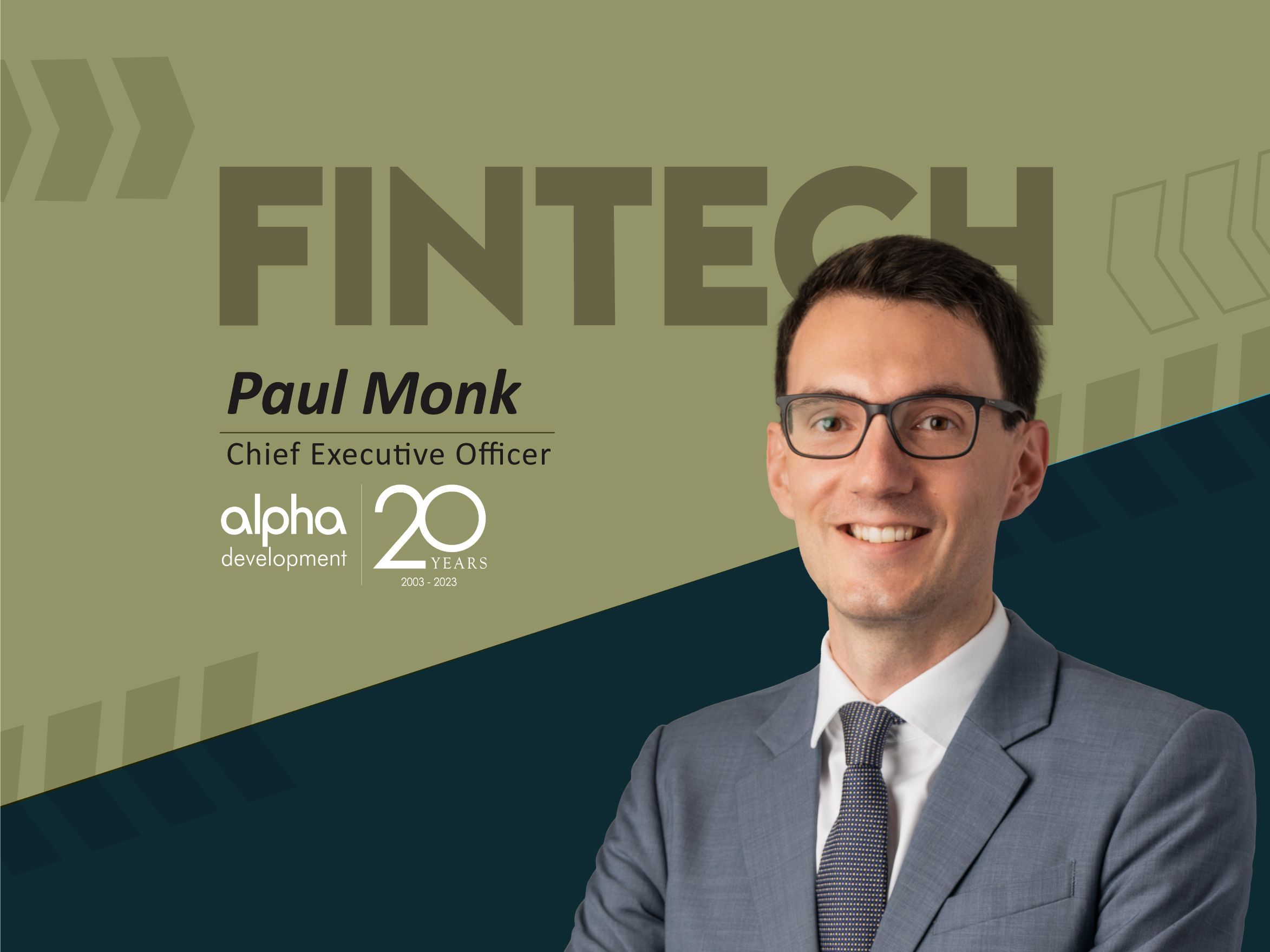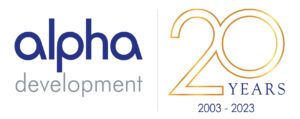Hi Paul, welcome to our Fintech interview series. Please tell us about your journey so far.
I’ve always been involved in financial training and education. I started my career in the City of London, focusing on graduate development within global markets as well as several eLearning projects for UK financial services continuing professional development (CPD). I joined Alpha Development in 2012 and worked in a number of roles across our offices before moving to the global CEO role in 2019. Today I’m based in Singapore, with responsibility for our global strategy and operations.
At Alpha, we support our clients across financial services (including banking, insurance, investment management, sovereign wealth management, and fintech) to deliver on their strategy through their people. This can be through talent attraction, onboarding, training, deployment and ongoing development.
We also have a specific focus on improving the diversity of our clients’ talent streams (whether for new hires or promotion/management/leadership programs). We help bring more lateral thinkers into technical roles, more women into leadership positions, more interns from disadvantaged backgrounds into financial services, and so on.
Alpha are specialists in accelerating the growth of talent in the financial services industry. Could you guide our readers more on this?
Alpha Development was founded by experienced banking professionals with the aim of creating effective training solutions that accelerate the growth of talent (people) and generate high-performing teams and success in the financial markets. Today our dynamic and energetic team is based across four global hubs – London, New York, Singapore and Abu Dhabi.
Through our expert, global team of corporate training specialists, we deliver customized, experiential and innovative training programs that teach, develop and inspire the best talent. Our clients typically choose to partner with us over several years and see our services as a long-term, profit-driving investment for their teams and organization.
Also Read: Global Fintech Interview with JB Orecchia, President and CEO of SavvyMoney
In a world of an increasing DeFi, the banks and FI’s must invest in building capabilities to bridge the emerging skills gap and help its professionals embrace opportunity. What are your comments?
Banks and financial institutions must invest to bridge the emerging skills gap and help their professionals embrace the growing opportunity of decentralized finance (DeFi). While this may seem like a huge undertaking, there are some key steps that institutions can follow to achieve this.
Firstly, banks and financial institutions can develop training programs to help their employees learn about DeFi and the skills needed to participate in it – hiring experts in the field to conduct training sessions or provide access to online courses.
Financial institutions can also partner with educational institutions, such as Alpha Development, to offer programs in DeFi. This will not only help their employees learn about DeFi but also attract new talent.
Additionally, by actively participating in DeFi projects or innovation, financial institutions should create opportunities for their employees to experiment with DeFi platforms and applications. This will help them gain practical experience and develop a deep understanding of the technology and its potential. This final step is critical – enabling people to work with this technology is key to driving engagement and change.
What are some of the top features that upcoming fintech apps or SaaS platforms will need to have in order to enable better finance management for users?
There are several features that upcoming fintech apps or SaaS platforms should have to enable better finance management for users, including personalized financial insights and easy budgeting and expense tracking.
With personalized financial insights fintech apps will provide users with personalized financial insights based on their spending habits, financial goals and income. Fintech apps should also provide users with easy-to-use budgeting tools and expense-tracking features to help them keep track of their finances. These features should be intuitive and provide users with real-time updates on their spending.
Furthermore, these apps should allow users to integrate, connect and manage multiple accounts from different banks and financial institutions, which will help them get a complete picture of their finances in one place. Finally, fintech apps should offer automated savings features that help users save money without having to actively think about it. This can include features like rounding up purchases and automatically transferring the difference to a savings account.
Also Read: Global Fintech Interview with Al Morris, Chief Executive Officer at Koii
What are some best practices that individuals should keep in mind always to ensure they have planned well for exigencies?
There are several best practices for staying up to date in the fast-moving world of decentralized finance (DeFi). Firstly, following thought leaders, experts and influencers in the DeFi industry – such as developers, investors and analysts – can help you stay updated with emerging trends, new projects, and the latest news in the space.
Secondly, joining online communities and forums where you can interact with other DeFi enthusiasts and stay informed about new developments in the industry is a key practice. This can include social media groups, online forums and chat rooms.
Additionally, attending industry conferences and events to network with other professionals is key as you can learn about new projects and trends and gain a deeper understanding of the DeFi space. Doing this regularly can also help you stay up to date with the latest advancements in technology and connect with other like-minded individuals in the industry.
How is DeFi playing its role in the current scenario? What are your future predictions?
Decentralized finance is already being integrated into fintech applications in various ways, and this trend is expected to continue in the future. Some of the ways DeFi is currently being integrated into fintech applications and is expected to continue doing so in the future are:
Cryptocurrency wallets: many fintech applications now support using cryptocurrency wallets, which allow users to store and manage their digital assets, including DeFi tokens.
Decentralized exchanges (DEXs): fintech applications are now integrating DEXs, which allow users to trade directly with each other without the need for intermediaries.
DeFi lending and borrowing: some fintech applications are now offering DeFi lending and borrowing services, enabling users to earn interest on their digital assets or borrow funds at lower interest rates than traditional lenders.
Automated investment platforms: automated investment platforms, also known as robo-advisors, are being developed to include DeFi tokens and other digital assets in their portfolios. These platforms use algorithms to manage investments and provide personalized investment recommendations.
Also Read: Global Fintech Interview with Brian Duncan, President at me&u
Could you share some last-minute tips for CEO’s in upcoming fintech startups?
Alpha’s approach – which I believe is universal for any CEO – is to stay focused on the customer, understanding and delivering what they need and want. It’s crucial to ensure that your team is continuously monitoring and listening to customer feedback to improve your product or service.
A second tip is being agile and adaptable. As the fintech industry continues to rapidly evolve, being agile and adaptable is critical to success. CEOs must strive to stay up to date with emerging trends and technologies and be prepared to pivot quickly if necessary. Furthermore, developing meta-skills that translate across projects, roles, and industries – like, for instance, critical thinking – will be key in creating adaptive learners and ensuring future success.
Finally, building a strong team. Investing in and building a strong and diverse team that has the necessary skills and experience to execute your vision is crucial. Encouraging a culture of collaboration and innovation and providing teams with the resources and support they need will be critical not only to their personal success but also to that of the organization.
Thank you, Paul! That was fun and we hope to see you back on globalfintechseries.com soon.
[To share your insights with us, please write to sghosh@martechseries.com]
Paul is the CEO of Alpha Development, a specialist financial training firm whose clients include the world’s most highly regarded investment banks and asset managers. Paul began his career in the City of London, developing top-tier graduate programmes with a focus on global markets, before moving to lead several high-profile eLearning projects across financial services. On joining Alpha Development in 2012, he was responsible for the global commercial team before relocating to Singapore to launch Alpha’s APAC business in 2015. He has been CEO of the firm since 2019, responsible for global strategy and operations across offices in the UK, US, Singapore, and Abu Dhabi.
Founded by experienced banking professionals, Alpha Development is a specialist early careers, sales, management, and leadership training provider for blue-chip financial services institutions. Alpha Development specialises in delivering complex global financial training programs at scale, with insightful content and a partnership approach to driving value for its customers.

